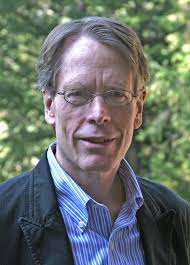Lars Peter Hansen: Professor Pleads for Acknowledgment of Knowledge Gap
 Professor Lars Hansen is the first to admit that even in economic science, certainties are few and far in between. In fact, the Nobel laureate has dedicated a large part of his life in academia to the study of uncertainties and how they affect markets.
Professor Lars Hansen is the first to admit that even in economic science, certainties are few and far in between. In fact, the Nobel laureate has dedicated a large part of his life in academia to the study of uncertainties and how they affect markets.
The “too-big-to-fail” argument, that prompted governments to massively intervene in the aftermath of the 2008 financial meltdown, is a prime example of a call to action not quite grounded in immutable certainties. “We do not really understand how turmoil in the financial market spills over into the wider economy but perceive the existence of a significant risk. This has proven enough of a motivator for governments to spend untold billions propping up faltering financial institutions.”
Mr Hansen, professor of economics at the University of Chicago and recipient of the Nobel Prize for Economic Sciences 2013, is an econometrist at heart and as such a number cruncher. However, not all numbers are created equal and some might be educated guestimates at best. Statistical analysis thus becomes an exercise in approximation which in turn causes wavering and scepticism among decision makers.
Together with Professor and 2011 Nobel Laureate Thomas Sargent of New York University, Mr Hansen is now applying his research of uncertainty to the recent financial crisis and the measurement of the systemic risks that drove government action at the time. Professors Hansen and Sargent are particularly interested in expanding upon the notion of Knightian Uncertainty: A risk that is impossible to calculate, as defined by the late University of Chicago Professor Frank Knight (1885-1972) who argued that uncertainty is radically distinct from the notion of risk, “from which it has never been properly separated.”
Knightian Uncertainty may also be applied to questions such as global warming: “Our knowledge of climate change impacts remains rather sparse. It may be prudent to act now because any delay might prove costly later. However, it is critical to recognize that we are designing and implementing policies based on limited knowledge.” Professor Hansen proposes the adoption of simple solutions to complex problems: “It might prove a wise course of action to devise straightforward, transparent and rather unpretentious policy frameworks to start tackling any given complex issue. As we learn more and obtain more certainties, those policies may be fine-tuned.”
As it concerns the oft-heard calls for more stringent financial oversight mechanisms in the wake of the 2008 crisis, Professor Hansen fears that they can end up doing more harm than good. “It’s not that we don’t stand in need of better supervision, but rather that we are now devising rules based on a poor understanding of how derailed capital markets affect macroeconomics. I would rather see simple capital requirements imposed on banks than subject them to an almost incomprehensibly large and complex set of rules of dubious efficacy.”
You may have an interest in also reading…
Guy Verhofstadt
He is the one European politician almost all Brits love to hate – and he knows it. Guy Verhofstadt, however,
Koofi and the Changing Face of Afghanistan
Some of us are burdened with lives of few hardships. Some of us are born to loving parents, have never
Powerful Leadership from Sonia Gandhi
Sonia Gandhi, aged 66 and widow of former PM Rajiv, is India’s most powerful leader and the longest serving president

















































































